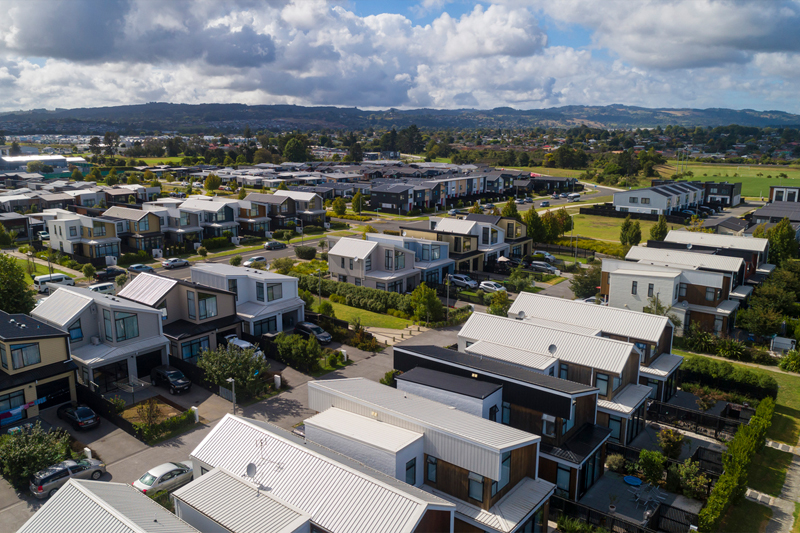The move to longer term fixed mortgages is gathering speed although a substantial share is still on floating or short-term rates as the RBNZ has indicated two more possible OCR cuts to 2.75%.
April RBNZ figures for new lending fully secured by residential mortgages show owner-occupiers are split nearly evenly between one-year, two-year fixed terms and floating rates with only three percentage points between the three terms.
The share of owner-occupier loans on floating and terms of less than one year are still elevated, representing 65.9% of lending.
The most popular choice for owner occupiers during April was the one-year fixed rate, with total lending rising to 30.7% from 30.1% in March, closely followed by the two-year rate, with lending increasing to 29.3% from 28.7%.
The biggest rise in mortgage share for owner-occupiers was the floating rate which rose by 3.8% from 23.9% in March to 27.7% in April.
However, the share of six-month fixed term lending dropped by 11.4% to 7.5%. In August last year lending on six-month terms was at 45.5% of all new mortgages in anticipation of the RBNZ starting its OCR cutting programme.
New lending by owner-occupiers remained at $5.7 billion during April.
For investors, who took out $2.2 billion in new mortgages during the month, floating and two-year fixed rates were the overwhelming favourites, accounting for 98.5% of all new lending.
Floating terms at 32.7% of new lending, were up 6.7% from 26% in March.
The share of one-year fixed terms increased from 31.1% in March to 31.8% in April, while two-year fixed terms accounted for 23.6 percent of new lending, down 2.9% points from 26.5 the previous month.
Investor lending also dropped for six-month, three-year and five-year fixed terms.
Total lending in the month blipped down to $8 billion from $8.1 billion in March. That is still up 34.6% from $6 billion in April last year.
Total new business lending was $2.7 billion, down 6.7% from $2.9 billion in March. Compared to April last year of $284 million, or 9.5%.
Short term and floating rates still a considerable chunk
In the RBNZ’s latest loan by purpose data series figures showed more than $200 billion of the country’s total mortgage book of $375.5 billion was on either floating or fixed for six months or less. That makes up 53.3% of outstanding mortgages.
At the January peak of mortgages holders rushing to short term or floating rates that figure stood at a whopping 56.9%.
During the April year owner occupier mortgages – including first home buyers – increased by $12.381 billion or 4.7% and at the end of April were at $274.798 billion, a rise of $1.09 billion, or 0.4%.
Investors are steadily buying more property and the mortgages they have taken out have increased by $2 billion over the first four months of the year. That is an annual growth rate of 6.3%.
Outstanding mortgage stock for investors over the year to April rose by $4.589 billion, or 5.1%.
At the end of the month investor mortgages sat at $95.433 billion, a lift of $572 million, or 0.6%, during the month.
Not all one-way traffic
Cotality (formerly CoreLogic) chief property economist Kelvin Davidson says the lower interest rates are clearly going to be bolstering households’ confidence as well as their wallets, and there were signs of higher loan-to-value and debt-to-income ratio lending activity in the latest Reserve Bank figures.
“But it’s not one-way traffic,” he says. Property values across the country edged down by -0.1% in May and remain -1.6% below a year ago.
The latest slight fall in values on the Cotality hedonic Home Value Index comes after some previous months of modest gains, with the national median now at $818,132. That remains 16.3% below the January 2022 peak.
“Housing isn’t necessarily affordable in absolute terms, while the economy and labour market remain subdued too,” Davidson says. Filled jobs also edged lower again in April. “These are certainly restraints on buyers’ willingness to push ahead with property deals or to pay higher prices,” he says.

![[TMM Podcast] Yelsa serves up “marine reserve” of property buyers](https://www.goodreturns.co.nz/pics/mike%20harvey.jpg)



 Search
Search
